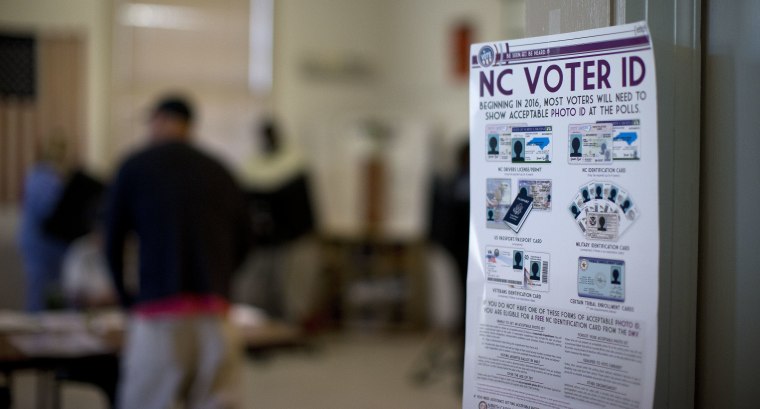The Justice Department urged the U.S. Supreme Court Thursday to leave a lower court ruling in place that struck down one of the nation's toughest voter ID laws.
A federal appeals court ruled in July that North Carolina's voter ID law and other changes to its election laws were aimed "with almost surgical precision" at making it harder for African Americans to vote. The ruling broadened the kind of ID's allowed at the polls and increased the time period for early voting, restoring both to what they were before the tough new law was passed in 2013.
The state then asked the Supreme Court "in order to avoid voter confusion" to let it enforce several parts of the law that had been declared invalid by the appeals court.
But the Justice Department, in a friend of court brief field Thursday, said putting a hold on that ruling now "would dramatically increase, not reduce, the risk of mistakes and confusion."
The government said North Carolina is already well on its way to implementing the July order. And it said state officials "fail to explain why, if there was a genuine 'emergency,' they waited so long" to ask the Supreme Court to step in.
"This is a case about the use of race to achieve partisan ends," the Justice Department said, and the coming election should be conducted as the July ruling ordered so that it will be "free from the taint of racial discrimination."
The state asked the Supreme Court to let it continue to enforce its voter ID law, which was in effect during this year's primary, to limit early voting to 10 days instead of 17 as the state originally did, and to bar pre-registration by 16-year-olds.
The state did not seek to put a hold on other parts of the appeals court ruling, which means same-day registration will be allowed and votes will be counted if they are cast in the wrong precinct.

